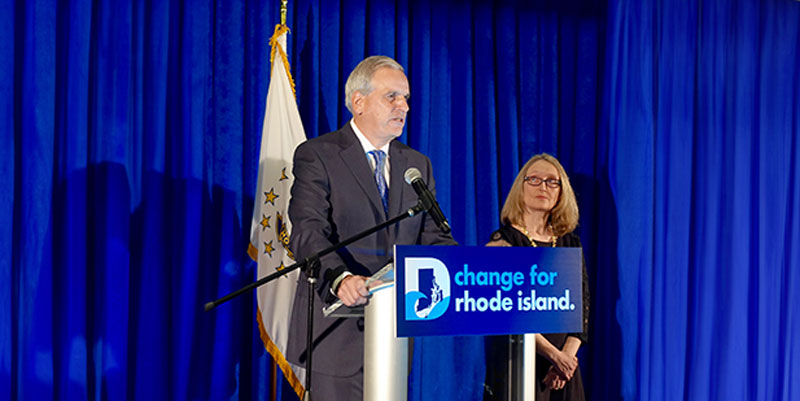
I have mixed feelings about (possibly) being muted by RI’s attorney general.
Social media provide a strange, unprecedented venue for public interactions. On one hand, these platforms promise the degree of connectivity and access that has characterized the Internet from its early popularization. On the other hand, a bit of space between our raw personalities and our in-print public personas is healthy.
So, what to make of the fact that Rhode Island Attorney General Peter Neronha has “muted” me on Twitter, and with pitiful excuse? One is tempted to say that people show their true colors in such places, but who could survive the immediate codification of his or her extemporaneous responses in casual conversation?
The quick summary is that Neronha posted, without link or context, that he mutes “troll accounts.” He and I had a bit of back-and-forth about public officials’ preventing the public from interacting with them evenly on social media. When I pressed for the criteria for his muting people, he simply asserted that I was “beyond the bounds,” and that was it.
Honestly, my first reaction is that this impetuous immaturity on his part is illustrative of disqualifying inadequacies that ought to keep him from further public office. If I were to file a legal complaint, related to government transparency or otherwise, and it came before him, I wouldn’t trust his office to handle it fairly. I was hardly harassing him on his Twitter account, so if my mild behavior put me beyond the pale of his awareness on social media, then how could anybody who shares my views, generally, be confident we’re not beyond the pale of his responsibilities in office?
The fair counterbalance I’ll offer is that I don’t expect the attorney general to hand me his cell phone number, give me the passcode to his home security, or invite me along to all of his professional or political meetings. After all, he didn’t block me, as (say) WPRI reporter Ted Nesi did after I asked whether a politician’s doing him a favor in his role as a journalism professor might create a conflict, so I can still heckle Neronha from the sidelines if I so choose; he just doesn’t have to hear me.
Still, Rhode Islanders must be able to trust the AG to conduct himself with a fairness well beyond the standards of a thin-skinned journalist. If I’d actually been trolling Neronha, by any reasonable definition, then muting would be a measured response. But the question nags: why was it such a bother to him that I wanted to know the standards for defining a Rhode Islander as a “troll”? His reaction makes one wonder how easily we lowly citizens might be dehumanized and deprived of our rights in his estimation.
The most frightening thought that follows is that he might be the best of them (meaning Rhode Island Democrats), which suggests principles of due process may not carry much weight in the Ocean State.
ADDENDUM (September 27, 2023, 7:14 a.m.
Having apparently read this post, Attorney General Neronha responded on Twitter to a direct question of mine from September 12, stating that he hadn’t muted me. Providing no facial expressions or body language, social media presents a new category of challenges. Of course, we act with nearly as little information as we have when attempting to interpret people’s thoughts behind their skulls. After all, one receives no notification of having been muted or unmuted, and others can choose to see individual posts of people they’ve muted. In any event, I’m glad Mr. Neronha has not crossed the line I thought he’d crossed (or, in any event, stepped back across it in the other direction).
Featured image from Shutterstock, with background adjusted using AI.

